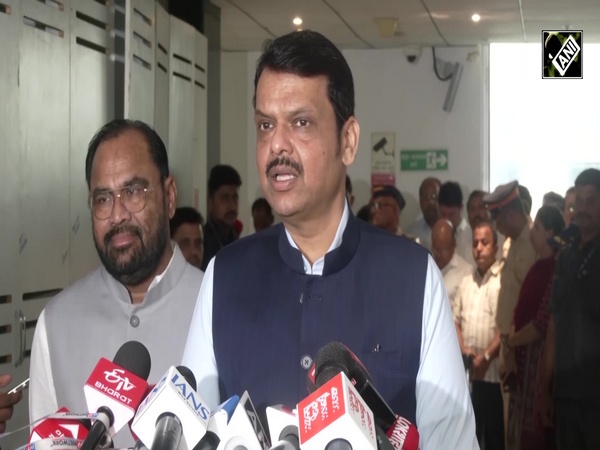
Economist S P Sharma's new book 'India@2047' charts roadmap to Global Economic Leadership
May 07, 2025
New Delhi [India], May 7 : Aiming to envision India's ascent to global economic leadership by its 100th year of independence, renowned economist S P Sharma launched his latest book 'India@2047: Leading the Global Economic Order' in New Delhi on Wednesday.
The launch event at Juniper Hall, India Habitat Centre, brought together several notable dignitaries, including Bharatiya Janata Party (BJP) National Spokesperson Gopal Krishna Agarwal; former Secretary, Ministry of Commerce and Industry, Ajay Dua; Indian Institute of Foreign Trade Vice Chancellor RM Joshi; former Secretary General of PHD Chamber of Commerce and Industry Saurabh Sanyal; Chairman of the Chamber's Kashmir chapter AP Vicky Shaw; and Niti Bhasin of the Delhi School of Economics. The event was moderated by Sansad TV anchor Teena Jha.
S P Sharma, Chief Economist at New Economic Order Economists and former Chief Economist of the PHD Chamber of Commerce and Industry, emphasised that India is already demonstrating strong economic momentum, resilience, and strategic policy focus despite global uncertainties. According to the book, India's average GDP growth of over 8 per cent during FY22 to FY24 positions the country as a key driver of global growth.
The book identifies key enablers of this transformation, including flagship government initiatives such as Make in India, PM Gati Shakti, and record-breaking Foreign Direct Investment which has crossed the USD 1 trillion mark. It highlights India's robust macroeconomic fundamentals--rising tax revenues, strong foreign exchange reserves, and a stable debt-to-GDP ratio--as signs of a maturing and stable economy.
Sharma's work spans seven detailed chapters, assessing India's economic journey through the lens of reforms, digital innovation, sustainability, and global integration. It also outlines India's evolving role in global forums like G20, BRICS, BIMSTEC, and its strategic partnerships with regions including the US, EU, GCC, and ASEAN. Key initiatives like the India-Middle East-Europe Economic Corridor (IMEC) and Chabahar Port are presented as pivotal in strengthening India's global connectivity and logistics leadership.
Gopal Krishna Agarwal called for a Saamuhik Sankalp--a collective pledge--to realize India's potential. He underscored the importance of entrepreneurship, intellectual capital, and domestic consumption, and praised India's controlled fiscal deficit and investment-friendly climate. Stressing on inclusive growth, Agarwal noted India's rise in welfare delivery and its expanding geopolitical, military, and economic footprint.
Ajay Dua hailed India as the "Startup Capital of the World" but also acknowledged challenges like low agricultural productivity and unemployment, especially among women. He stressed the need to unlock domestic demand and leverage intellectual capital for growth.
RM Joshi praised the book for providing a holistic vision of Viksit Bharat. He pointed to India's global food security role, its recently concluded UK trade deal, and the country's resilience during COVID-19 as evidence of its growing global stature.
Niti Bhasin lauded India's inclusive and collective leadership style, citing the African Union's inclusion in the G20 as a key example. She advocated for complementing competitive federalism with cooperative efforts for holistic national progress.
Saurabh Sanyal highlighted the importance of political will, military strength, and skilled manpower in national development. He also spoke about India's increasing adaptation to AI and digital technologies, as detailed in the book.
AP Vicky Shaw brought regional perspectives into the discussion, emphasizing tourism's growth in Jammu & Kashmir and suggesting more focus on food processing and high-value agricultural exports. He noted India's rising defence and electronics exports, and the importance of social inclusivity in economic growth.
In summation, India@2047: Leading the Global Economic Order presents a vision grounded in economic foresight, inclusive development, and global cooperation. Sharma's book is both a blueprint and a call to action, mapping India's transition into a globally integrated, innovative, and sustainable economic superpower by 2047.






















